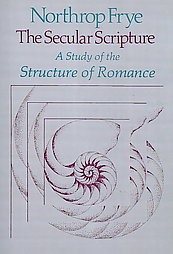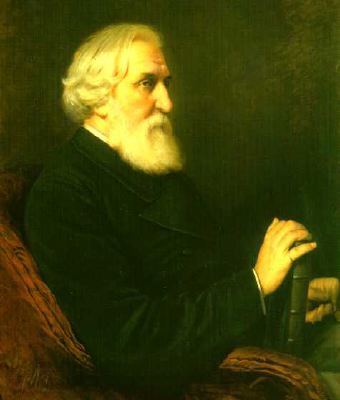
Many readers of Frye have admitted they have a “preferred” book, or one that influenced them more than any other. If I recall correctly, Michael Dolzani was most influenced by Fearful Symmetry; Bob Denham by Anatomy of Criticism; Michael Happy by The Educated Imagination; Joe Adamson by The Secular Scripture; and Eva Kushner by The Critical Path. Indeed, we all appear to have that one moment in reading Frye when suddenly it all made sense. In my own case, I had always thought it was Anatomy of Criticism, but recently I have been thinking more and more about The Secular Scripture.
Over this past term I have had the great pleasure of teaching with Frye’s The Secular Scripture, and my students have, for the most part I think, enjoyed engaging with it. However, we have also taken Frye out of his comfort zone. The course I teach considers “Race and Ethnicity in Latin American Narrative” (this is the official course title). But I tailored the course to address one of my own preferred area of study, romance novels. Frye, not surprisingly, seems most comfortable when dealing with romance in its European context, but Latin American romance novels appear to be beyond his purview.
When I began to speak about romance, I went for the obvious question: How many of you have read Twilight or Harlequin romances? — which, of course, many of them had. I then got them to read theoretical writings on the romance, particularly The Secular Scripture, which became our guide to romance. They also read articles or chapters by other theorists writing on romance, including writing on Latin America: Pamela Regis, Lois Parkinson Zamora, Doris Sommer, Jean Franco, and others (all of whom, interestingly enough, engage with Frye).
Doris Sommer, for instance, remarked in her book Foundational Fictions: The National Romances of Latin America, that:
The Latin American elite wanted to modernize and to prosper, yes; but it wanted at the same time to retain the practically feudal privilege it had inherited from colonial times. Logically, a functioning aristocracy by any name might prefer to represent itself in the incorruptibly ideal terms that Northrop Frye finds characteristic of romance, ‘the structural core of all fiction.’ In Latin America’s newly won bourgeois excess, Frye’s heroic heroes, villainous villains, and beautiful heroines of romance are dislodged, unfixed. They cross class, gender, and racial stereotypes in ways unspeakable for European romance. Yet Frye’s observations about masculine and feminine ideals here are to the point; they point backward to medieval quest-romances where victory meant restored fertility, the union of male and female heroes. (48-49)
I will admit here that I spent many pages of a now-discarded dissertation arguing against Doris Sommer’s understanding of Frye. It is my belief that we can still work with Frye’s theories of romance, and this is precisely what I have endeavoured to show in the course I am teaching. Frye did not read Latin American romances, but his theory if applicable to the study of world literature should translate to any given context.
My students and I will have worked through four novels in our course when we conclude at the end of the month. We have found that Frye’s archetypes do fit well into the study of romance in its canonical and popular senses. Could Frye have predicted some of the specifics of Latin American romance? No, he couldn’t, not any more than he could address the latest manifestations of the genre in the twenty-first century. But, his model still holds true for the bulk of these romances.
Frye’s The Secular Scripture is, as with most of his books, very teachable and very user-friendly to the student of genre. My students are now preparing to write term papers, which must attend to The Secular Scripture, and I eagarly wait to read their ideas and their approaches to the Latin American Romance with the assistance of Frye.




